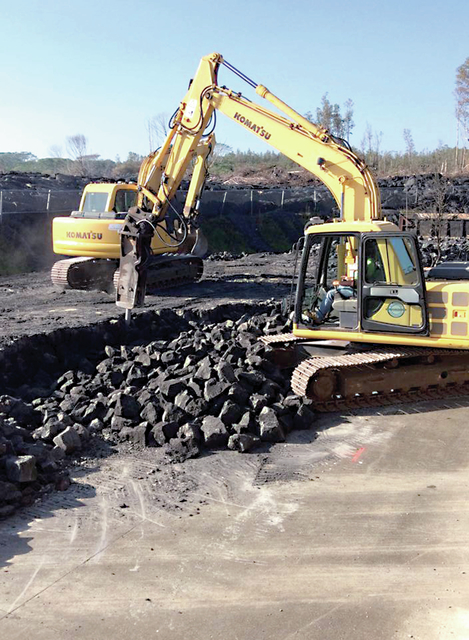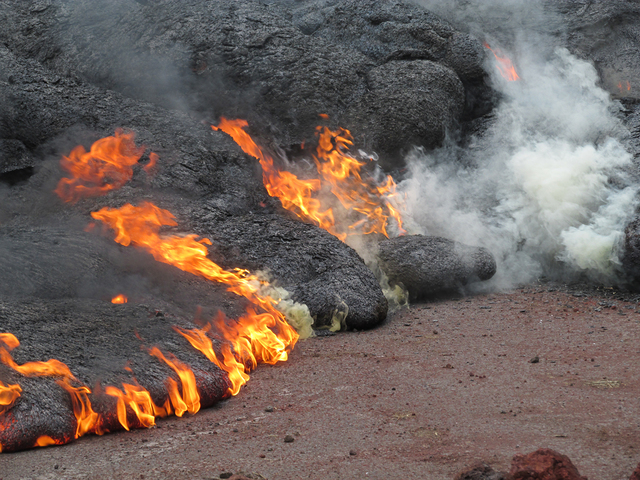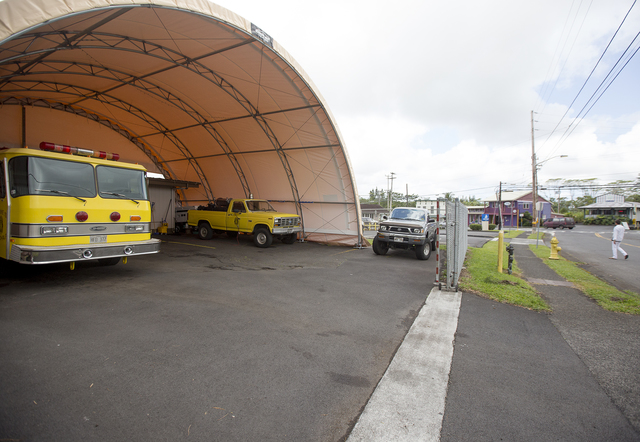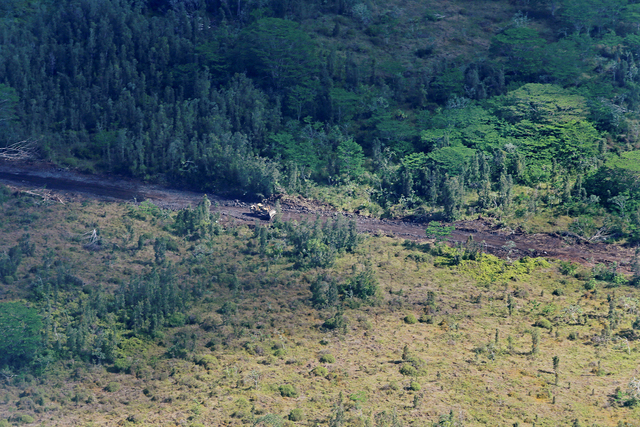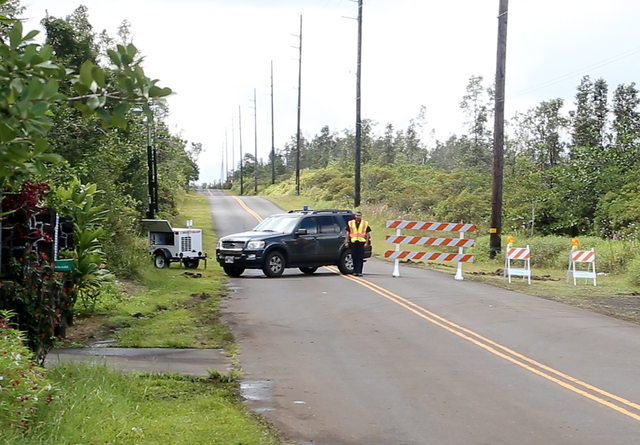There was a silver lining in the lava flow emergency that threatened Puna over the past months — an unexpected financial boost for local contractors large and small. ADVERTISING There was a silver lining in the lava flow emergency that
There was a silver lining in the lava flow emergency that threatened Puna over the past months — an unexpected financial boost for local contractors large and small.
Seventeen Big Island contractors had gotten a piece of the project to the tune of $2.9 million as of Feb. 15, according to information provided by the county Department of Public Works under Hawaii’s Uniform Information Practices Act. That number has increased to a little over $7 million by this week, DPW Director Warren Lee said Tuesday.
The payments ranged from $516,003 to perennial county contractor Isemoto Contracting Co. Ltd. to $3,600 to Iwikauikaua Joaquin, a Kamehameha Schools land caretaker.
County staff got a big piece of the pie, too.
As of March 31, the county had racked up about $1.3 million in employee overtime, said Finance Director Deanna Sako. As of last month, FEMA had allocated $251,241 for county overtime costs associated with disaster response and was still reviewing other applications for assistance.
Those funds are first distributed to the Hawaii Emergency Management Agency as the grantee. Once approved by the state agency, the money is distributed to the county.
Last year, the DPW was scrambling to find contractors to do the work as the lava loomed. With many of the larger government contractors tied up in other projects, the county cast a wide net under emergency contracting provisions that sidestepped the formal bid process.
The county also acted as general contractor, an unusual situation that found county staff coordinating a range of contractors as well as county roads and construction crews.
That gave Puna-area mom and pop land-clearing and excavation companies such as John’s Land Clearing and Lee’s General Service a chance to play with the big guys.
“These are not typical contractors to the county of Hawaii,” said Lee. “They are in the Puna area, they are very familiar with the geology, and they were right there with the local knowledge and wisdom.”
A West Hawaii Today analysis of reams of procurement documents shows officials working the phones feverishly to find the three quotes needed to qualify for federal funding for each part of the project. Emergency proclamations by the governor and the mayor helped expedite the process, and the required three quotes were not always obtained, according to the documents.
The lava emergency was downgraded from a warning to a watch in late March, seven months after the lava flow threatened Puna neighborhoods and Pahoa Village.
The County Council had approved a $20 million bond, primarily to cover upfront costs for three emergency access roads in Puna in the event that a creeping lava flow would cut off Highway 130, the primary conduit to and from Puna. The Federal Emergency Management Agency is expected to reimburse the county for most of the cost of construction and employee overtime.
The Chain of Craters alternate route from Kalapana into Hawaii Volcanoes National Park is expected to cost about $10 million. Lee said the county is adding finishing touches such as reflectors, with an eye to completing the project next week.
Railroad Avenue, which runs from Nanawale Estates to Hawaiian Paradise Park, and Government Beach Road were estimated to together add another $3 million.
FEMA last month expanded its public assistance program for the lava flow to include debris removal and infrastructure repairs. That move amended President Barack Obama’s Nov. 3 disaster declaration and allowed Hawaii County to also seek reimbursement for the cost of reopening the Pahoa solid waste transfer station.
The initial declaration was limited to emergency protective measures, such as county overtime and the cost of building alternate routes for lower Puna in case the flow severed Highway 130.
The $3.95 million Pahoa transfer station, which was partially inundated with lava in November, has since been reopened at an estimated cost of $100,000, according to Bobby Jean Leithead Todd, county Department of Environmental Management director.


